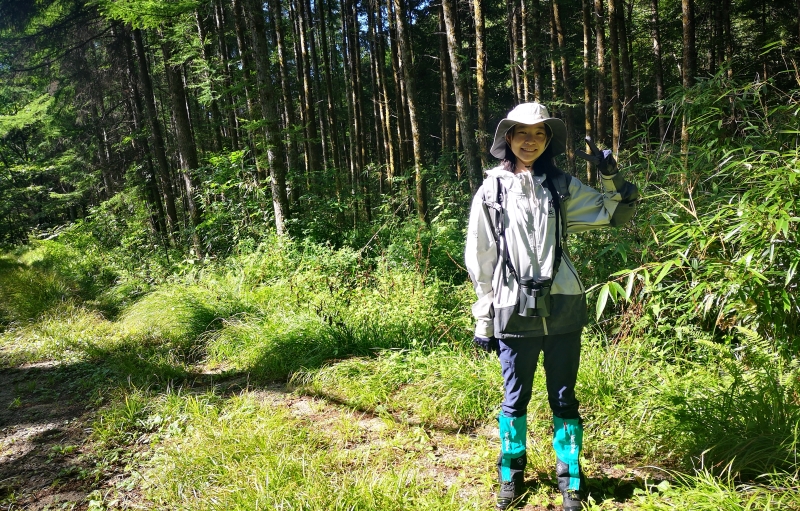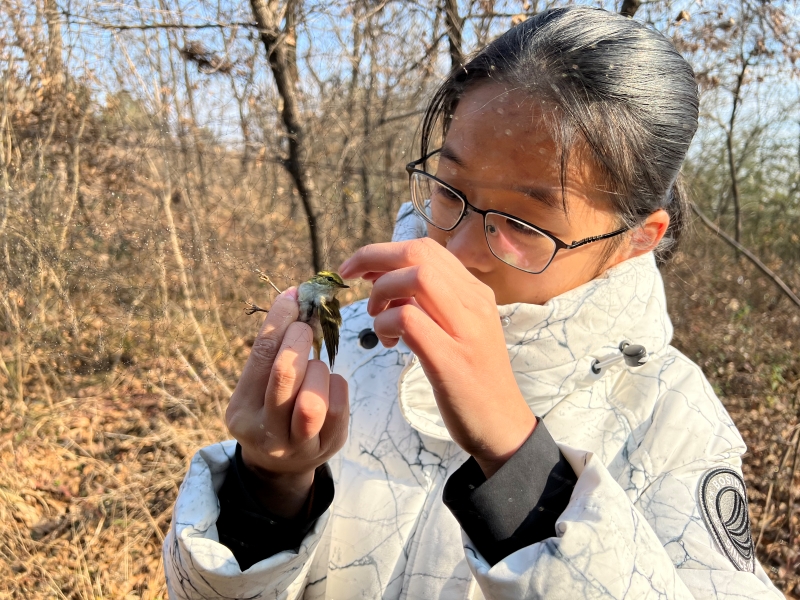Duke Kunshan has played a major role in a study on the use of citizen science projects to tackle bird-window collisions that aims to raise awareness of their usefulness among policy makers, conservationists and the public.
Published in Frontiers in Ecology and the Environment, the paper stems from research at 22 universities, NGOs, government agencies and conservation organizations across the globe, with DKU leading the project in China. It found citizen science campaigns to be an important driver in raising awareness, and advancing understanding of bird deaths from building and window collisions that would benefit from greater resources.

“Bird-window collisions are a major threat to avian populations that until recently received limited attention from decision makers, and few efforts to address,” said Dr. Binbin Li, assistant professor of environmental science at DKU and a co-author of the research paper.
“Citizen science has proved an effective way of gathering scientific information about the issue and raising awareness of it, with the potential to steer government and institutional policies in a positive direction,” she added.
Titled ‘Citizen Science to Address the Global Issue of Bird–window Collisions’, the research paper examined several projects aimed at tackling the issue, including the Fatal Light Awareness Program (FLAP) in Canada, Lights Out Texas in the United States, and the Anti-Bird Window Collision Action Alliance in China. Each of the campaigns involved multiple partners across a broad geographical area.
The Chinese campaign arose from the Duke Kunshan University Campus Bird Collision Project, launched by Li in 2018, which led to the release of China’s first nationwide study of bird-window collisions in 2021. Duke Kunshan students were involved in all aspects of that project.
“As the primary student coordinator for the project, I managed tasks such as media outreach, protocol development, data analysis, and report writing,” said Shuyue Liao, an environmental science/biogeochemistry major, from DKU’s Class of 2023. “As the project expanded nationwide, we had the opportunity to participate in exhibitions and speak at natural history museums and other events.”

It had an impact both on the university campus and further afield, said Xinyue Chen, an environmental science/biogeochemistry student from DKU’s Class of 2025, who also worked on the project.
“On the DKU campus, dot stickers were put on glass surfaces where collisions were found, and adjustments were made to the design of the Phase 2 expansion of the university campus to make it more bird-friendly,” she said. These included reducing external glass surface area, using less transparent material and placing decorative patterns on windows.
That project led to the launch of the nationwide Anti-Bird Window Collision Action Alliance in 2022, which spread the study to a network of collaborators across China including Friends of Nature, Guarding Wilderness, Shenzhen Mangrove Wetlands Conservation Foundation, Shanshui Conservation Center, Dr. Zhu Lei from Guangxi Academy of Science and Chongqing Optimistic Earth, and involved mass public engagement.

The example campaigns showed the “tremendous potential” of citizen science, said the research paper’s lead author Scott Loss, an associate professor at Oklahoma State University in the United States.
They made “immense contributions” to the advancement of bird-window collision research, according to the paper, providing a clearer picture of the issue, raising awareness of it among the public and acting as a motivation for the development of policies that could reduce bird deaths. In addition, they provided lessons for future citizen science campaigns on the benefits of engaging non-traditional participants such as students and developing partnerships over a wide geographical area.
The paper also outlined obstacles that could hold back citizen science campaigns, including funding limitations, engaging with decisionmakers, and expanding activities to additional countries.
For the bird-window collision citizen science campaigns, continued support from government agencies, NGOs, professional scientists and commercial sectors will be “crucial” to tackling the issue, which poses a substantial threat to bird populations, it added.

